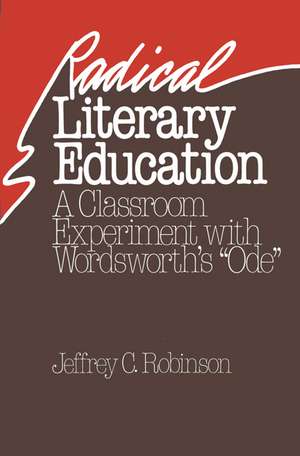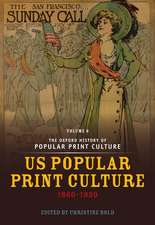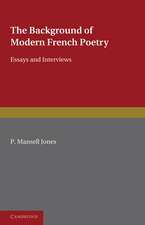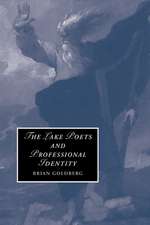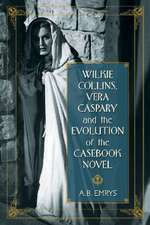Radical Literary Education
Autor Jeffrey Robinsonen Limba Engleză Paperback – 14 dec 1986
The poem in the college classroom usually appears as an autonomous object to be dissected, thus revealing its internal relations—image patterns, meter and rhyme schemes, and types of figurative language. Jeffrey C. Robinson, a college teacher for many years, believes that there is a better way to teach poetry. His conviction, developed over many years and acted upon in his own classroom, has led to a pedagogy that urges the teaching of each poem by examining it in its various contexts. The result, as expressed in this book, is a moving exploration of the relationships among scholarship, teaching, and learning, of critical importance to all teachers of literature, as well as to those concerned with educational theory.
Robinson demonstrates his pedagogy with a case study—the teaching of Wordsworth’s “Ode: Intimations of Immortality from Recollections of Early Childhood.” He interprets the students’ fascinating and moving confusions and discoveries as the “Ode” loses its consoling aura and as their thinking takes a correspondingly more energetic, critical, and self-reflective turn.
As a teacher, the author—whose muted autobiography itself enriches the context—has had his own concerns to which this book provides some answers: How would a prolonged encounter with one poem significantly alter students’ learning? Would the poem, seen in its social relations, become less an object of worship and more an occasion for the students’ own exploration of the place of art in society and in their own education? This book has emerged out of these questions. As well as being a full rehearsal of the actual literary and historical contexts of Wordsworth’s “Ode,” it is a meditation on the sociology of literary education and necessarily the learning apparatus of the late adolescent.
Robinson demonstrates his pedagogy with a case study—the teaching of Wordsworth’s “Ode: Intimations of Immortality from Recollections of Early Childhood.” He interprets the students’ fascinating and moving confusions and discoveries as the “Ode” loses its consoling aura and as their thinking takes a correspondingly more energetic, critical, and self-reflective turn.
As a teacher, the author—whose muted autobiography itself enriches the context—has had his own concerns to which this book provides some answers: How would a prolonged encounter with one poem significantly alter students’ learning? Would the poem, seen in its social relations, become less an object of worship and more an occasion for the students’ own exploration of the place of art in society and in their own education? This book has emerged out of these questions. As well as being a full rehearsal of the actual literary and historical contexts of Wordsworth’s “Ode,” it is a meditation on the sociology of literary education and necessarily the learning apparatus of the late adolescent.
Preț: 87.59 lei
Nou
Puncte Express: 131
Preț estimativ în valută:
16.76€ • 17.44$ • 13.84£
16.76€ • 17.44$ • 13.84£
Carte disponibilă
Livrare economică 24 martie-07 aprilie
Preluare comenzi: 021 569.72.76
Specificații
ISBN-13: 9780299110642
ISBN-10: 0299110648
Pagini: 204
Dimensiuni: 150 x 230 x 13 mm
Greutate: 0.26 kg
Editura: University of Wisconsin Press
Colecția University of Wisconsin Press
ISBN-10: 0299110648
Pagini: 204
Dimensiuni: 150 x 230 x 13 mm
Greutate: 0.26 kg
Editura: University of Wisconsin Press
Colecția University of Wisconsin Press
Recenzii
“This book fascinates us with the poem, the question of history, the way one uncovers an ideology both revealed and concealed, the complexity of contexts—and, of course, the mysterious process of teaching, the reflections on the mind at work on a poem—moving with it, fighting against it, finding ways of evasion, reluctant admission, expansion. This is liberal education as liberation, not simply confirmation.”—James R. Kincaid, University of Colorado at Boulder
Notă biografică
Jeffrey C. Robinson is professor emeritus of English at the University of Colorado and an honorary research fellow for the department of English at the University of Glasgow. He is the author of many works, including Unfettering Poetry: The Fancy and British Romanticism and collections of poetry. He served as editor for many publications, including Dorothy Van Ghent’s Keats: The Myth of the Hero.
Descriere
The poem in the college classroom usually appears as an autonomous object to be dissected, thus revealing its internal relations—image patterns, meter and rhyme schemes, and types of figurative language. Jeffrey C. Robinson, a college teacher for many years, believes that there is a better way to teach poetry. His conviction, developed over many years and acted upon in his own classroom, has led to a pedagogy that urges the teaching of each poem by examining it in its various contexts. The result, as expressed in this book, is a moving exploration of the relationships among scholarship, teaching, and learning, of critical importance to all teachers of literature, as well as to those concerned with educational theory.
Robinson demonstrates his pedagogy with a case study—the teaching of Wordsworth’s “Ode: Intimations of Immortality from Recollections of Early Childhood.” He interprets the students’ fascinating and moving confusions and discoveries as the “Ode” loses its consoling aura and as their thinking takes a correspondingly more energetic, critical, and self-reflective turn.
As a teacher, the author—whose muted autobiography itself enriches the context—has had his own concerns to which this book provides some answers: How would a prolonged encounter with one poem significantly alter students’ learning? Would the poem, seen in its social relations, become less an object of worship and more an occasion for the students’ own exploration of the place of art in society and in their own education? This book has emerged out of these questions. As well as being a full rehearsal of the actual literary and historical contexts of Wordsworth’s “Ode,” it is a meditation on the sociology of literary education and necessarily the learning apparatus of the late adolescent.
Robinson demonstrates his pedagogy with a case study—the teaching of Wordsworth’s “Ode: Intimations of Immortality from Recollections of Early Childhood.” He interprets the students’ fascinating and moving confusions and discoveries as the “Ode” loses its consoling aura and as their thinking takes a correspondingly more energetic, critical, and self-reflective turn.
As a teacher, the author—whose muted autobiography itself enriches the context—has had his own concerns to which this book provides some answers: How would a prolonged encounter with one poem significantly alter students’ learning? Would the poem, seen in its social relations, become less an object of worship and more an occasion for the students’ own exploration of the place of art in society and in their own education? This book has emerged out of these questions. As well as being a full rehearsal of the actual literary and historical contexts of Wordsworth’s “Ode,” it is a meditation on the sociology of literary education and necessarily the learning apparatus of the late adolescent.
